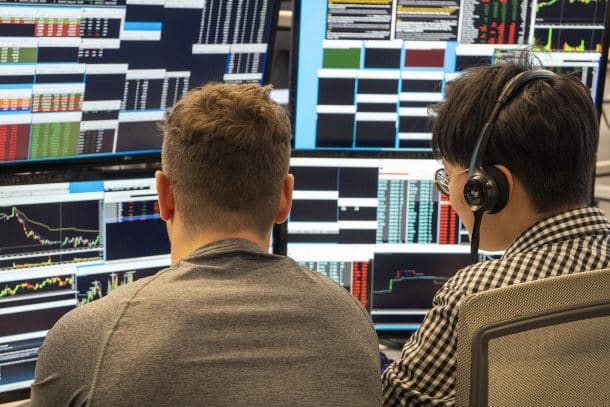Bella,
I first saw SMB on Wall Street Warriors as a Senior at Drexel University. Then, I found (unknowingly) your book on audible and decided to give the book a shot (its great by the way). Your book and philosophy on trading presents me and a ton of traders I know with a challenge, “stop believing that we are the warren buffets of the world and holding onto stocks” – as you say in your book (One Good Trade).
I like the intraday world you depict in your writings on prop trading, but making the transition from being a long term value investor, to an intraday trader is challenging, to say the least. I am working Full-Time, trading Part-Time and would eventually like to join a prop trading desk FT.
I am interested to hear your thoughts on what you believe to be good transition steps into intraday from long term holding? I would also like to know your thoughts on how an intra-day trader is at a disadvantage or advantage if he/she trades from home or work vs. in a prop trading firm. My belief has been that in my position (working FT), trading intra-day from work is not a viable strategy, because an impromptu conference call could destroy a trade setup any day of the week. That risk for me is one of the reasons I’m hesitant to transition.
I look forward to hearing your take on these ideas.
@mikebellafiore
Funny I just got a similar question and responded in a recent post Don’t Quit Your Day Job to Trade Pro YET.
Long-term investing and intraday trading are different animals. There are some takeaways from long-term investing that relate to intraday trading, like understanding what moves markets, fundamentals catalysts that move a stock, hopefully risk management. I look at the markets as a series of patterns. No matter what product, time frame, market you trade a trader works to become an expert at patterns that make the most sense to him. In my next book, The PlayBook, I say build a PlayBook of your best trading patterns and trade more of them, and trade your best patterns bigger.
So to trade well as an intraday trader you must develop your book of setups that make sense to you with an intraday time frame. Our game is faster. Reading the Tape is a skill we recommend you learn. How to select the Stocks In Play is more important. Technical Analysis helps us. There is trader psychology to embrace. And much more. You must develop the specific skills that the patterns of intraday trading reward.
And this takes time. 8 months for some and 18 months for others can be a measure before becoming consistently profitable. And training, review, work, mentorship, coaching, and patience are essential.
On a prop desk you have the advantage of talking trading with like-minded traders every tick of the marketplace. 60 pairs of eyes are better than one so ideally you will be exposed to more market opportunities from call-outs. However, technology mitigates this with tools such as SMB Real-time. Also, you can knock on the office of a partner or tap them on the soldier to ask a trading question. Finally, in-house technology is much better at a prop firm than what most have at their home/office. There is no substitute for immersing yourself in the culture of learning at a prop desk. But you can get very close to this experience with virtual learning, from training programs like The SMB Foundation, or The Options Foundation.
It appears that your job is more demanding than most. A better start might be for you to trade Options, that do not require constant monitoring. There are some guys out there that make very good money trading one options strategy.
If you do decide to make the transition to intraday trading, trade on a demo until you are consistently making money. There is no point throwing away money in the marketplace until you are confident with your setups. Also, create a support system that allows you to be your best trader. That means, training, coaching, mentoring, idea generation, technology, etc. You are competing against the most competitive people in the world. Prepare yourself.
I hope that helps.

Mike Bellafiore
no relevant positions



One Comment on “Is It Better To Trade From Home?”
Trading and investing have social status associations which dictate how and when the terms are used by the media. Often I notice they’re used in a random and interchangeable way, but implicitly investing is generally portrayed as a socially good/desirable activity,whereas trading as dubious and often bad. Stuff and nonsense but it serves the financial industry well.